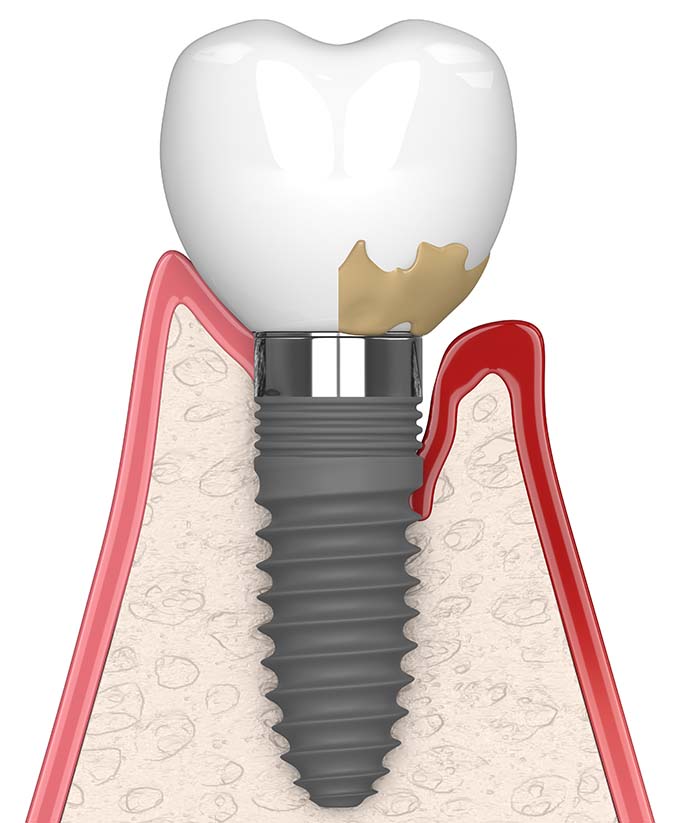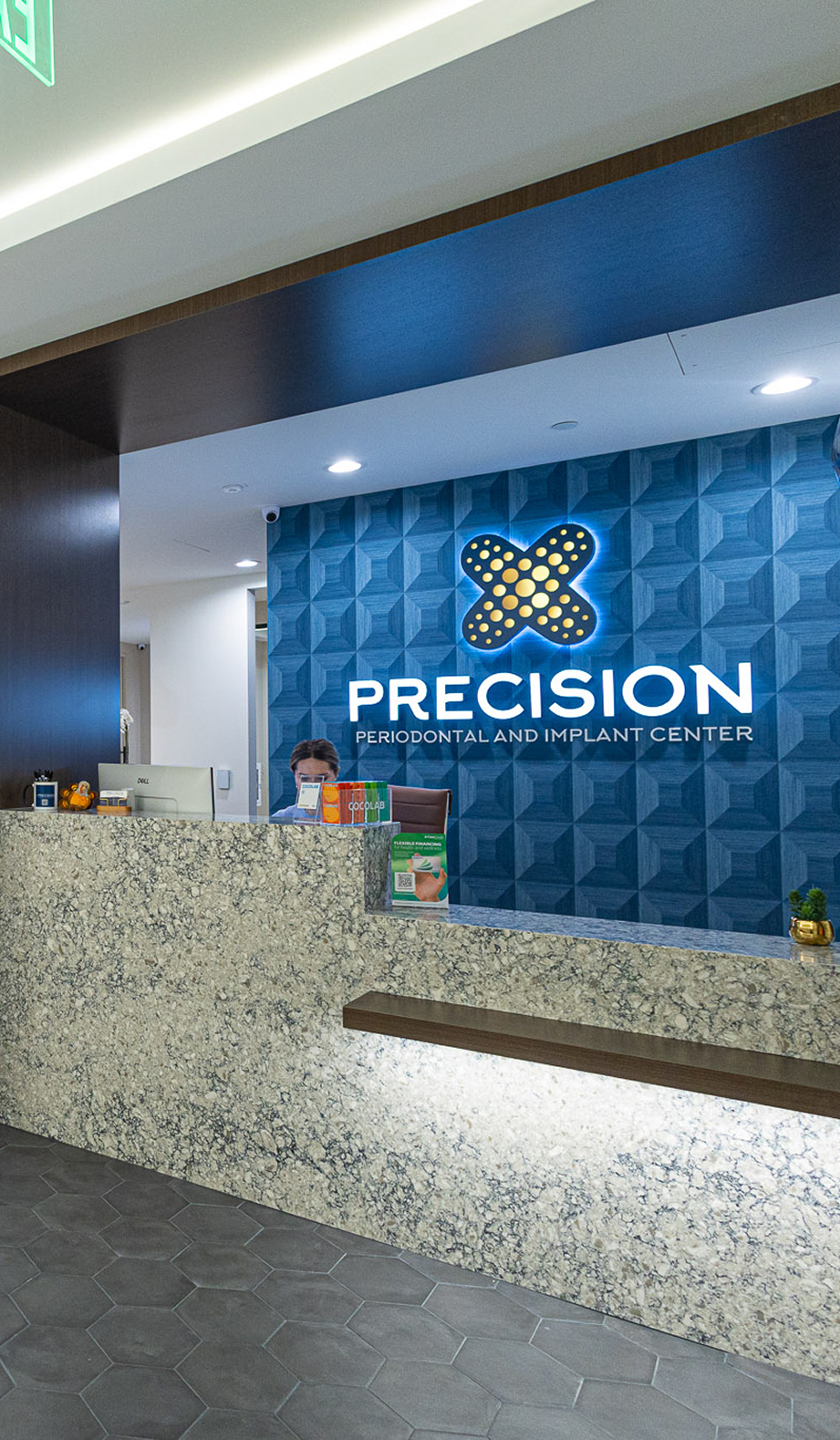Failing Implant Treatment
When Dental Implants Need Extra Care
Dental implants are one of the most predictable and successful treatments in modern dentistry, with success rates above 95%. But in rare cases, an implant may not heal properly, or it may develop problems years after placement. If your implant feels loose, painful, or uncomfortable, it’s important to have it evaluated quickly.
At Precision Periodontal and Implant Center, we specialize in diagnosing and treating failing implants. With advanced technology and extensive surgical expertise, we can often save the implant—or provide a stable new solution if replacement is necessary.

Precision Implants
Why Implants Fail
There are several reasons why a dental implant may not succeed. Common causes include:
Peri-Implantitis
A form of gum disease that affects the tissues around the implant, leading to bone loss.
Insufficient Bone Support
Sometimes the bone doesn’t integrate fully with the implant.
Overloading
Excess stress on the implant due to bite issues or poorly designed restorations.
Medical Factors
Smoking, diabetes, or certain medications can affect healing.
Surgical or Restorative Complications
Occasionally, issues in placement or restoration contribute to failure.
Not every implant problem means the entire system must be removed. In many cases, early detection and timely treatment can stabilize the implant and restore comfort.
Recognizing the Signs
If you have an implant, it’s important to know when something isn’t right. Warning signs may include:
Persistent pain, swelling, or tenderness around the implant
Looseness or movement in the implant or crown
Gum recession or changes around the implant site
Pus, bleeding, or an unpleasant taste near the implant
If you notice any of these symptoms, schedule an appointment at Precision Periodontal and Implant Center as soon as possible. The earlier we intervene, the greater the chance of saving your implant.


Treatment Options for Failing Implants
Our approach depends on the cause and severity of the problem:
Non-Surgical Treatment
For early-stage peri-implantitis, scaling, laser therapy, and localized antibiotics may resolve infection and stabilize the implant.
Surgical Treatment
In cases of bone loss, we may perform regenerative procedures, such as bone grafting or guided tissue regeneration, to rebuild support around the implant.
Implant Removal and Replacement
If the implant cannot be saved, we can remove it, restore the site with bone grafting if needed, and place a new implant once healing is complete.
Every treatment plan is designed individually, with the goal of restoring both function and confidence in your smile.
Advanced Technology for Accurate Care
At Precision Periodontal and Implant Center, we use 3D imaging, digital planning, and minimally invasive techniques to diagnose and treat failing implants with precision. This allows us to clearly see the health of the surrounding bone and tissues, target the root cause of the problem, and deliver predictable outcomes.

Protecting Your Long-Term Investment
Most implant complications are preventable. With proper oral hygiene, regular check-ups, and professional cleanings, implants can last a lifetime. After treating a failing implant, we’ll provide you with tailored guidance on how to protect your implants for years to come, including:
Professional maintenance visits at recommended intervals
Personalized home care strategies for cleaning around implants
Monitoring for bite or occlusion issues that could stress implants
Take the First Step Toward Healing
Call 310-708-3938 today to schedule an appointment and take the first step toward restoring your implant health and your peace of mind.
